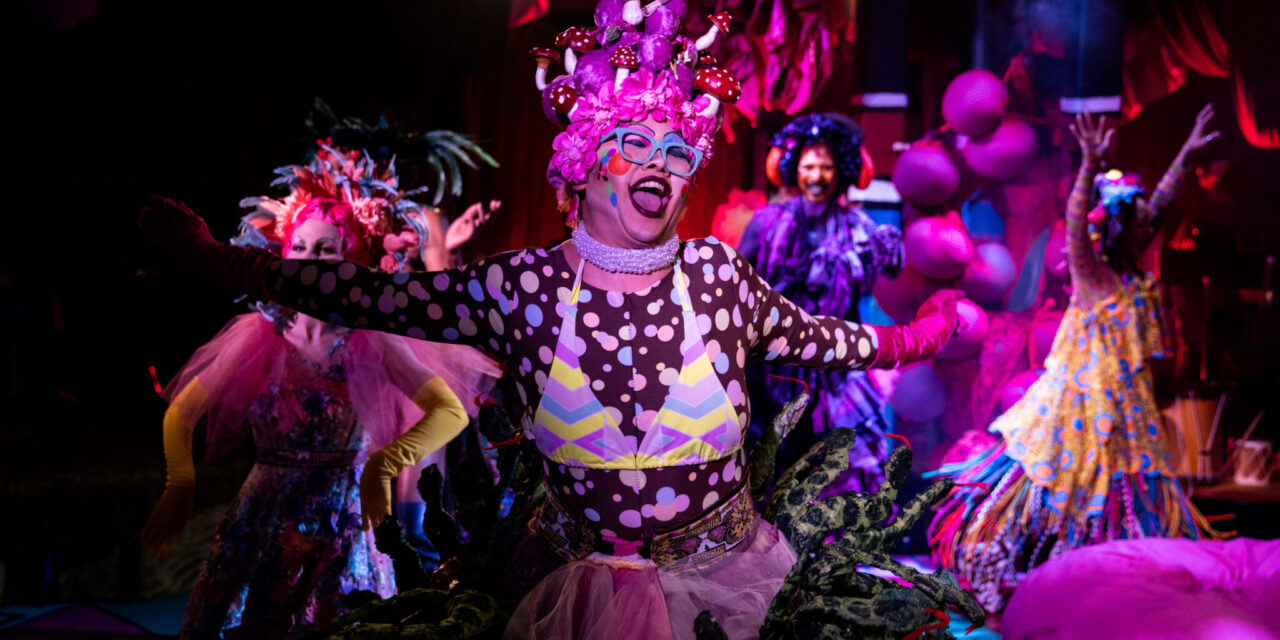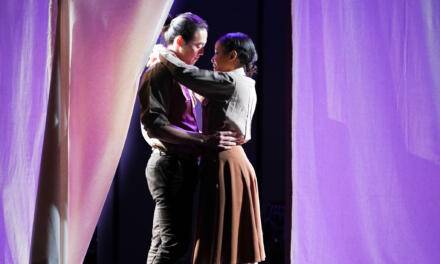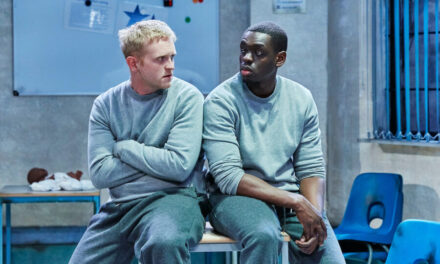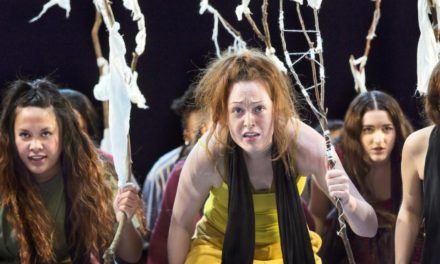Vibrant, thought-provoking, invigorating, and brimming with talent, “The Hang,” with book and lyrics by Taylor Mac and music by Matt Ray, was a ball of a performance. Full of absurdism, musical excellence, queer celebration, and peppered with at once humorous and deeply intriguing social commentary, the show follows Socrates (Taylor Mac) and disciples in a fantastical interpretation of their last “hang” before Socrates is sentenced to death. In an active attempt to rebuke form, librettist Taylor Mac (who uses “judy” as a gender pronoun) has written a show with no storyline or narrative arc, rather each song in the opera focuses on a character or explores an idea. Truly an ensemble piece, “The Hang” gave each member of the cast and band the chance to shine, with the instrumentalists often joining the actors center stage for virtuosic soloing. The performance felt inviting in all of its elements from the colorful yet cozy set design, to the ensemble of singers full of contagious energy, to Ray’s jazzy, new-age score that drew me in and made me want to jump to my feet and dance along, all while musing on the show’s central theme of “wondering.”
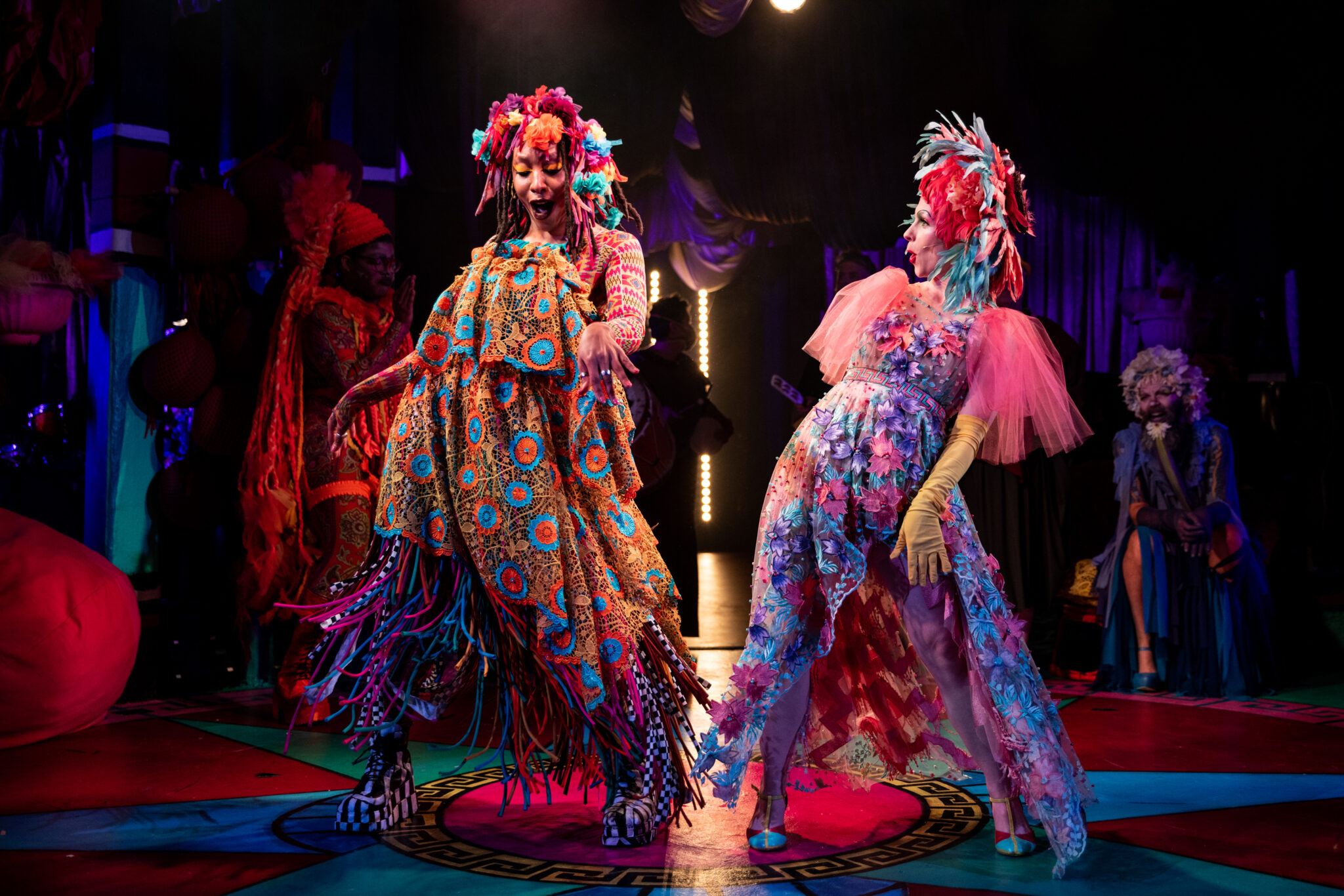
Synead Cidney Nichols and Kat Edmonson. Photo by Maria Baranova.
I was instantly transported into the world of the play as soon as I walked into the theater. A mismatch assortment of upholstered chairs made up the small audience, butting right up against the floor space that acted as the stage. The ceiling was draped with long pieces of billowing fabric, and multi-colored, multi-shaped seating dotted the stage, from a hanging chair adorned with large colorful balls along a back pillar to a large, velvety poof. The space gave the impression of a cozy yet psychedelic tea shop with the many colors and textures coming together to form a whole. In this way, the set and costumes, which were bright, textured, and wonderfully campy, were a reflection of the players on stage – each with their vibrant personalities and many talents. And each member of the cast and band were given a chance to shine and be featured throughout the opera.
From the very first downbeat I found the music of the opera to be sensational. Beginning with a toe-tapping groove from the rhythm section, Ray’s music was instantly evocative of jazz and R&B with strong modern art-music influences. Written for drums (Joel. E Mateo), bass (Gary Wang), keys (Matt Ray), a saxophone section (Lisa Parrott, alto saxophone; Jessica Lurie, baritone and tenor saxophone; and Jonathan Beshay, tenor saxophone), trumpet (Greg Glassman), and trombone (J. Walter Hawkes), the score felt entirely new while at the same time calling on a familiar and inviting vintage jazz feel. The band, which sat just behind the playing space, were often as much a part of the scene as the actors, which added a further element of community and unity within the world of the show. Aligning with jazz practices, each member of the band, throughout the opera, was given the opportunity to perform solos and demonstrate their amazing talent. I was so impressed each time the instrumentalists took center stage.
Each member of the ensemble of singer/actors on stage was such a standout – it was an incredibly strong group of performers. Taylor Mac, in the role of Socrates in addition to being the book writer, was a light and a grounding force in the ever-shifting ideas presented in the show. Mac’s voice as a writer and as a singer are very strong and judy delivered on the performance and the content. Kat Edmonson, Queen Esther, Synead Cidney Nichols, and Wesley Garlington wowed me in particular with their powerful voices. I was drawn into every minute of Queen Esther’s magnetic solo both by her presence onstage and her rich vocal tone. Then, Edmonson and Nichols were featured in my favorite moment from the opera: About halfway through the show, five members of the band joined the actors center stage for an extended music break that blew the house down. Suddenly, the stage cleared and baritone saxophone player, Jessica Lurie, took center stage alone for an incredible solo. Switching between moments of fast technical playing, extended technique, and lyrical phrases, the whole solo was stunning. Then, Edmonson, with a jazzy and smooth voice, began the first scatting solo, which is when a vocalist improvises melodies as an instrumentalist would. It was incredible to listen to. After an ensemble chorus, Nichols stepped center for her scatting solo and I was blown away all over again. Then, when Trebien Pollard took the stage for an extended dance break, I wanted to jump to my feet and hype him up along with the rest of the cast. The whole piece was a wonderful celebration of community with an incredible cast of talented characters.
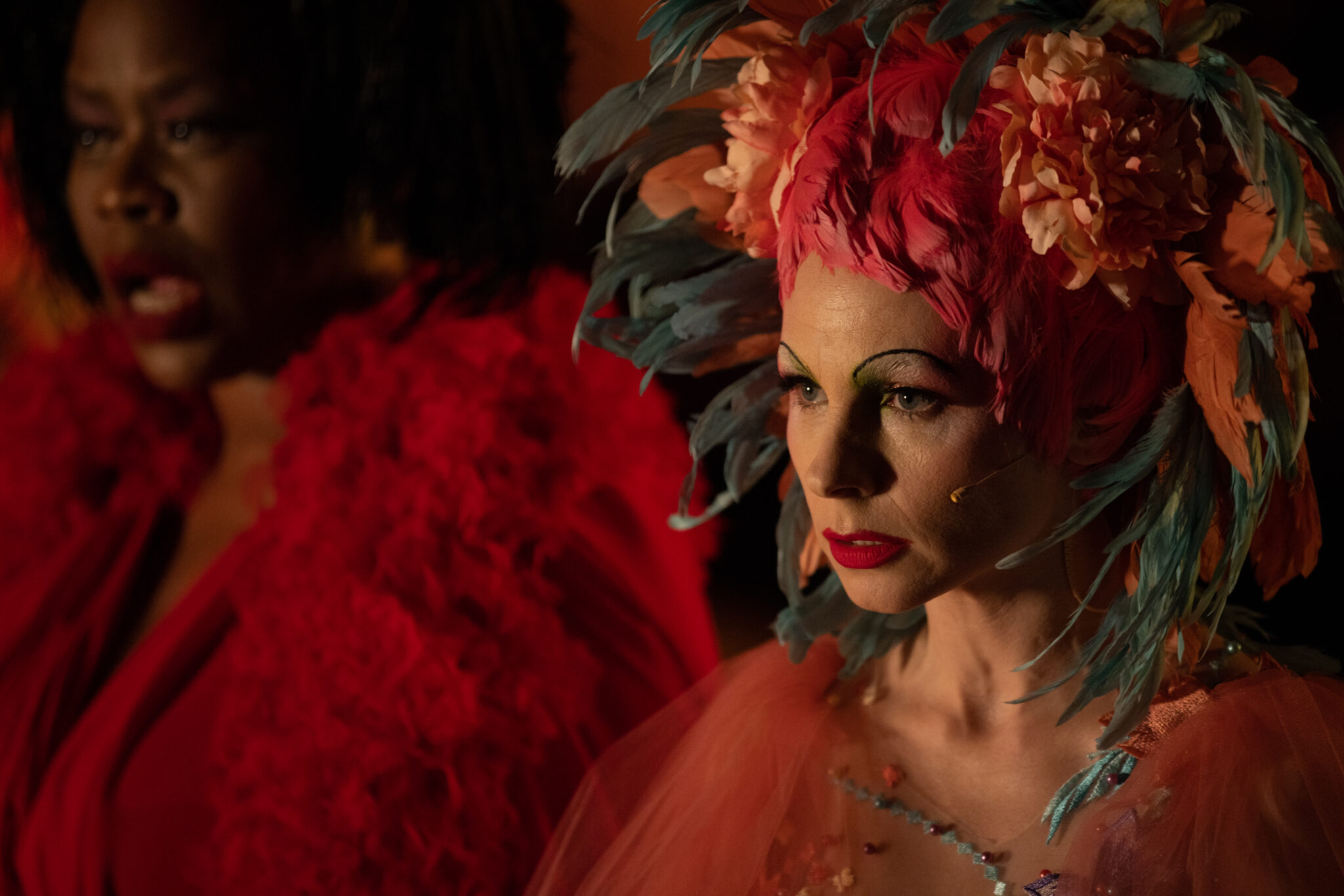
Queen Esther and Kat Edmonson. Photo by Maria Baranova.
I was also taken by the many questions being posed in the show. Any work with a focus on Socrates will, of course, have elements of philosophizing. I found “The Hang” to be at once asking questions about the position of art and protest and humor in society while maintaining a light-hearted framework of “wondering.” In this way, Mac muses on heavy subjects that humanity has been trying to parse for centuries without the work taking on an Aire of being a “gadfly,” or someone who critiques society with the goal of inciting change. For example, in one song “Aristophanes’ Stand Up,” the player poses question after question about virtue and how it applies to our consumption of art and humor in today’s world, all while sitting on a toilet framed with heavy, red velvet curtains. Throughout the show, this player and Plato are often found wondering about whether humor or art that incites negative action should be limited. The show positions these characters as “gadflies” while still giving voice to their musings. But by placing their line of questioning on, for example, a toilet framed by lush curtains, it is clear that we don’t need to take this heavy line of questioning too seriously. In the spirit of wondering, in this review alone, by imposing my singular interpretation on a multifaceted work, am I removing you from the individualized experience the show seeks to impart? I guess you’ll just have to go and find out.
This post was written by the author in their personal capacity.The opinions expressed in this article are the author’s own and do not reflect the view of The Theatre Times, their staff or collaborators.
This post was written by Megan C. McCormick.
The views expressed here belong to the author and do not necessarily reflect our views and opinions.

